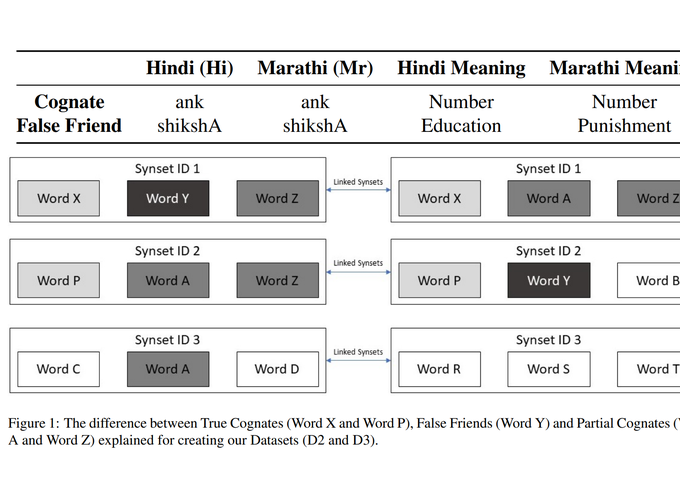Abstract
Cognates are present in multiple variants of the same text across different languages (e.g., hund in German and hound in English language mean dog). They pose a challenge to various Natural Language Processing (NLP) applications such as Machine Translation, Cross-lingual Sense Disambiguation, Computational Phylogenetics, and Information Retrieval. A possible solution to address this challenge is to identify cognates across language pairs. In this paper, we describe the creation of two cognate datasets for twelve Indian languages, namely Sanskrit, Hindi, Assamese, Oriya, Kannada, Gujarati, Tamil, Telugu, Punjabi, Bengali, Marathi, and Malayalam. We digitize the cognate data from an Indian language cognate dictionary and utilize linked Indian language Wordnets to generate cognate sets. Additionally, we use the Wordnet data to create a False Friends’ dataset for eleven language pairs. We also evaluate the efficacy of our dataset using previously available baseline cognate detection approaches. We also perform a manual evaluation with the help of lexicographers and release the curated gold-standard dataset with this paper.
